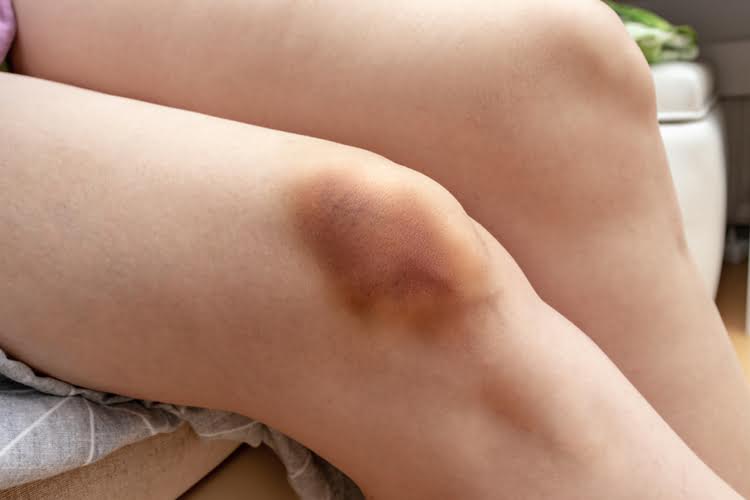Think of it as the difference between a shot of espresso and a regular cuppa joe. Get the lowdown on different strains at this medical marijuana dispensaries guide. Well, cannabis has been shown to help alleviate the symptoms, and places like ARCannabisClinic specialize in medical evaluations specifically for these conditions. If you’re curious about how to get on the greener side of medicine, here’s a guide on how to get a https://ecosoberhouse.com/ marijuana card. When determining how long weed will stay in your system, healthcare professionals say it all comes down to frequency and the amount you use.
The Bottom Line: How Long Does It Take for THC To Leave Your System Completely?
Hormonal differences between females and males impact THC metabolism, with women harboring longer detection windows because of higher fat percentages than men. These screenings can detect THC metabolites for up to 90 days after consumption. However, the downside is that there is a high likelihood of false positive results for these tests because they rely on skin oil that transfers to the hair, making them less accurate. For the uninformed, hair follicle drug tests involve procuring a small sample from the person’s scalp before sending it to a lab for testing. Researchers tested their urine for THCCOOH with a cutoff level of 50ng/ml. As we already mentioned, THC and its metabolites are highly fat-soluble, and they “stick “to body fat and are slowly released into the blood.

How long does THC stay in your hair follicles?
- This is because THC is stored in fat, and if you exercise and that fat breaks down, THC is released back into your system.
- Over time, that stored THC gets released back into the bloodstream before going through another round of metabolization in the liver.
- For the study, researchers cut hair into 1-centimeter sections to test for exposure up to 1 month prior.
At Soberman’s Estate, we regularly work with men whose cannabis use has affected their focus, motivation, and emotional well-being. When THC enters the body, it travels through the bloodstream to the brain, where it binds to cannabinoid receptors—especially CB1 receptors linked to pleasure, memory, and coordination. This triggers a surge of dopamine, leading to a range of psychoactive effects. THC, or tetrahydrocannabinol, is the primary psychoactive compound in marijuana. Yes, individuals with a faster metabolism may process and expel THC more rapidly, influencing how long it remains detectable. These studies show how drug use trends evolve over decades and across developmental stages.
Broad Spectrum CBD Softgels THC Free
- For instance, using someone else’s urine is risky due to stringent lab protocols that detect tampering.
- According to current findings, THCA can stay in the hair for up to 90 days.
This knowledge is crucial for navigating employment and legal situations. Detection times can vary significantly depending on factors such as how often you use cannabis, the method of consumption, and the type of drug test being administered. For example, occasional users might clear THC from their systems within just a few days, while regular users could face detection windows that extend beyond a month. Worried about how long weed will show up in your system before a drug screening or a test? If you are a heavy cannabis user, THC can be detected in your urine for up to 30 days after last use.
- These tests are generally not performed except in certain cases because they are expensive and time-consuming.
- This wide range is why it’s tricky to give a single answer to how long weed stays in your urine.
- Detection times can range depending on the drug, but it typically picks up on new drug use within the last hours.

However, various factors, like your metabolism and frequency of use (daily or occasional), impact the detection times in urine, blood, saliva, and hair drug tests. The effects of marijuana, such as feeling relaxed or euphoric, may last for a few hours, but THC stays in your body for days, weeks, or even months. This is because THC is stored in fat cells and slowly released into the bloodstream over time. Even if you no longer feel the effects, drug tests can still detect THC in your system depending on factors like your frequency of use, body fat, and metabolism. Occasional users test positive for 3 to 7 days, while chronic users test positive for 30 days or more.
However, even this is not 100% foolproof because home drug detection kits have a higher upper limit of detection (usually 50 ng/mL) compared to some other medical testing kits. This means you may test negative, but a laboratory test may still show marijuana in your Alcoholics Anonymous system. We looked into published scientific studies about how long does weed stay in your system.
Because THC leaves your bloodstream fairly quickly, blood tests for weed use aren’t as effective as pee tests.. But some states still ban weed, and many employers require drug tests as a condition of employment. So you may wonder how long it takes for weed to leave your body after you stop using it and whether there are ways to get weed out of your system faster. Only urine tests designed to detect THC metabolites will show cannabis use. After use, cannabinoids reach the hair follicles via small blood vessels and from sebum and sweat surrounding the hair shaft.
However, they did not measure beyond 30 hours to find the last negative result time. If you suspect you need a formal approach to quitting marijuana, detox facilities provide medical supervision and emotional support. Professionals can monitor withdrawal symptoms, reduce discomfort, and help you avoid relapses.

Mental Health and Loneliness
That said, THC detection times rarely exceed 30 days, according to a 2005 fact-sheet written by Paul Cary, director of the Toxicology and Drug Monitoring Laboratory at the University of Missouri. When asking, “How long does cannabis stay in your system,” it’s important to understand that detection times vary based on the testing method used. Different tests can detect cannabis use for varying periods after consumption. This is especially significant for men involved in recovery programs, facing legal evaluations, or undergoing workplace drug testing. Even if someone has abstained from cannabis for weeks, marijuana remains detectable in their system and can impact treatment, employment, or legal outcomes.
After all, it’s impossible to know exactly how long weed will show up in your system. Drug tests can identify THC and its metabolites in urine, blood, hair, and saliva, although the detection windows vary. If you’re facing a hair follicle test, be aware that any regular cannabis use in the last few months could be detected.
In the calculations above, it was marijuana how long in system presumed that the detection of THC in urine is being conducted with a standard drug screening test with a 20 ng/ml cut-off rate. Some laboratories might also be using an older lab screening test with 50 ng/ml cut-off rate. There’s no one-size-fits-all answer to how long THC remains in your system, because every individual processes cannabis differently.
Saliva
For people who smoke cannabis once per day or more, tests may detect it in their system for 30 days or longer. Urine and hair tests have a longer detection window from 1–90 days after the last use. The test is cheap, and results can be ready in as little as 10 minutes. These tests look for traces of THC or its metabolites in a sample of urine. How long they can detect THC after the last use depends on how much weed a person consumes.
